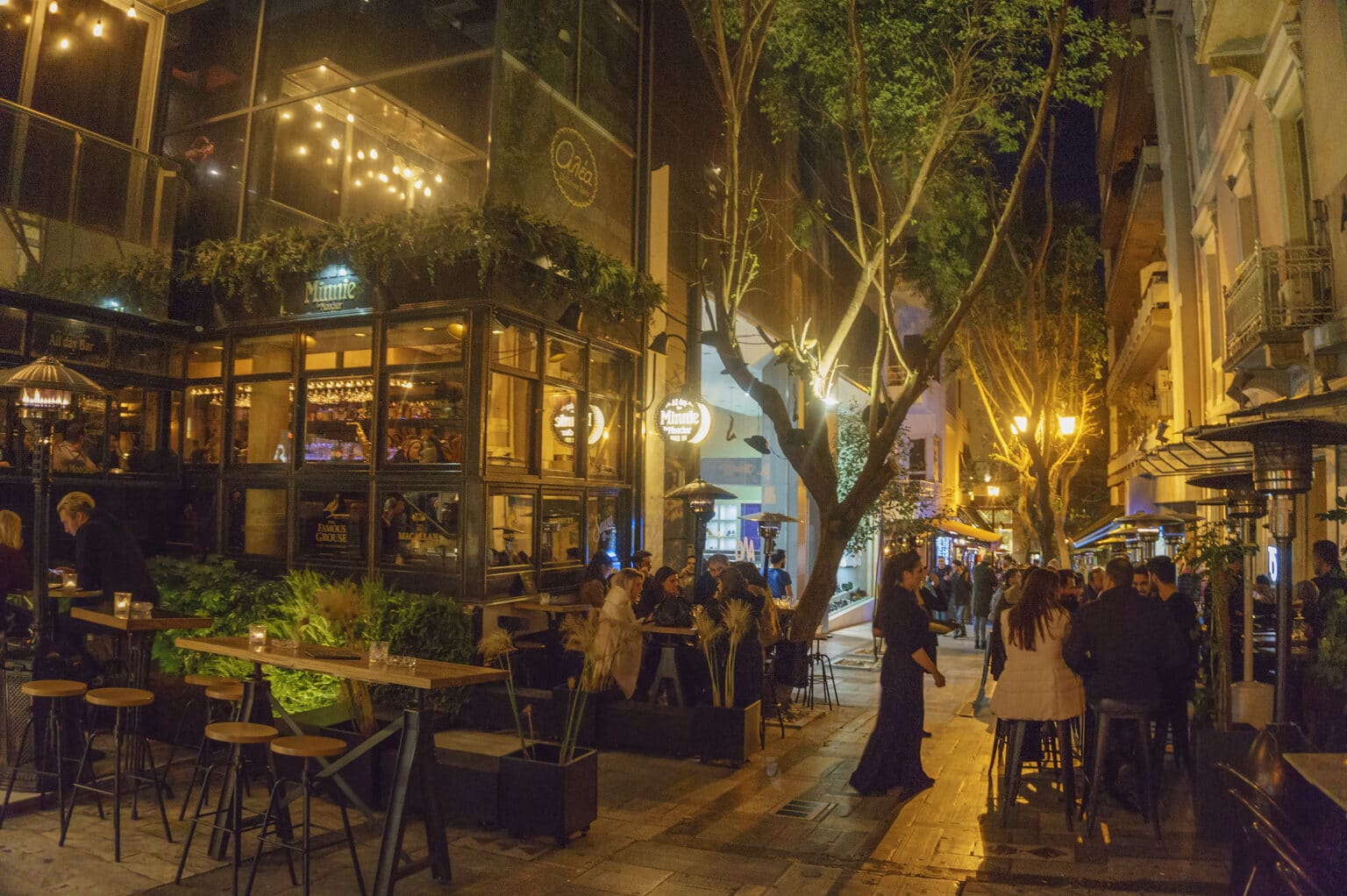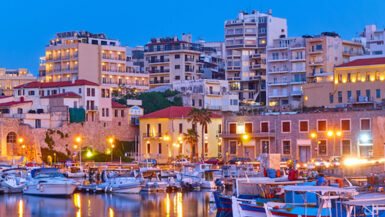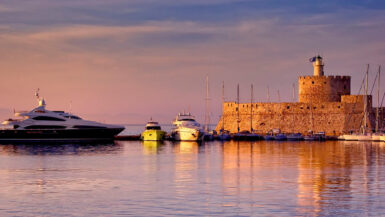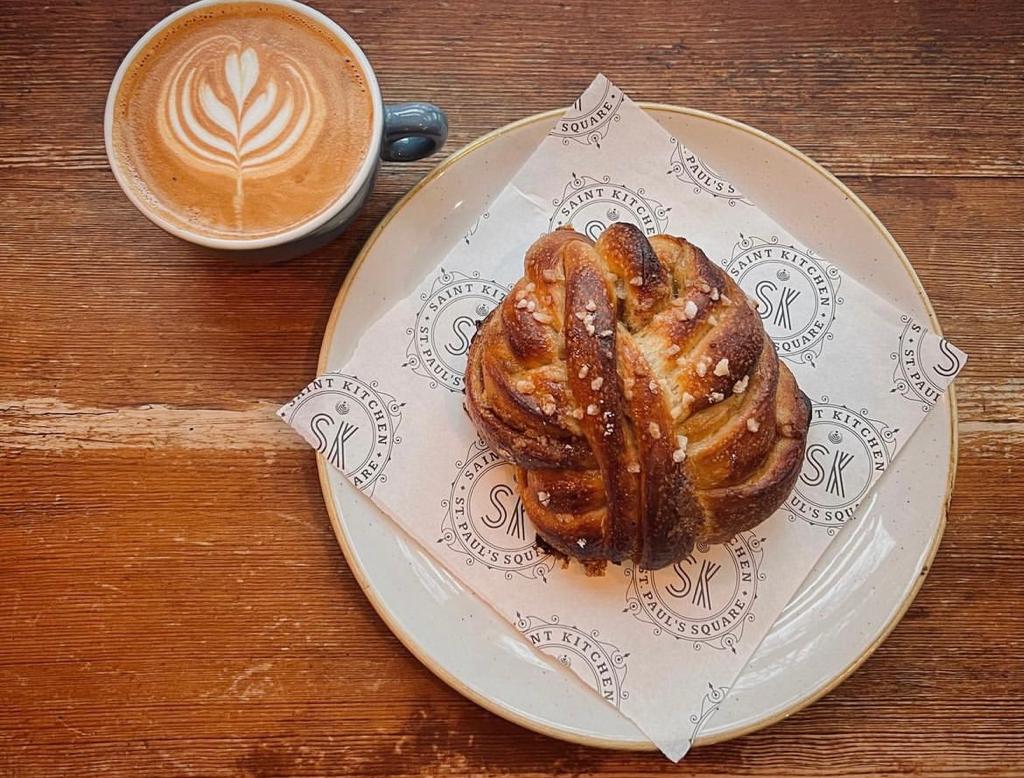Greece is no stranger to traditions, the country is crammed full of centuries-old superstitions, religious rituals and quirky observations. From evil eyes to pomegranates at New Year, here are seven unique traditions in Greece that you might not be familiar with.
Unique Greek Traditions
1. The Evil Eye
Practised in both Greek and Turkey, the Evil Eye (matiasma) is one of the country’s most famous superstitions. The Evil Eye is a curse given from one person to another by way of a spiteful look. The person who catches the evil eye will usually start to feel pretty rough, both physically and mentally. If this happens, the only way to release them from the curse is by hiring a xematiasma expert to say a special prayer.
Alternatively, you can protect yourself from the Evil Eye in the first place, which is what most Greeks do. They wear a charm – a blue bead with an eye painted on it – to ward it off. Tradition holds that blue repels the evil eye.

2. Name day celebrations
Most Greeks are named after a religious saint – and every saint gets its own day in the Greek Orthodox calendar. In Greece, this means that every year you get to celebrate your saint’s day, as well as your birthday. Known as Name Day, friends and family will usually visit with small presents and good wishes. The host will offer sweets and pastries for guests in return. While the tradition is practised in quite a few European countries, in Greece it’s even more important than your birthday.
Speaking of names, another tradition holds that firstborn children should be named after a grandparent. So, a baby boy will often take the name of his paternal grandfather, and a baby girl takes the name of her maternal grandmother. That’s why some names are crazily common in Greece.

3. Carnival
Carnival, known as Apokries, is a whole two-week feast that ends on the first day of Lent. The festival is rooted in an ancient Greek celebration dedicated to agriculture, fertility and Dionysus. Today, it marks the days before fasting begins (Apokries comes from the words apochi and kreas, which mean abstinence and meat).
The most famous Carnival festival takes place in Patras. It features a huge parade of school children, floats and costumed entertainment and culminates in the burning at the stake of the King of Carnival. Thousands of locals and tourists head here every year.
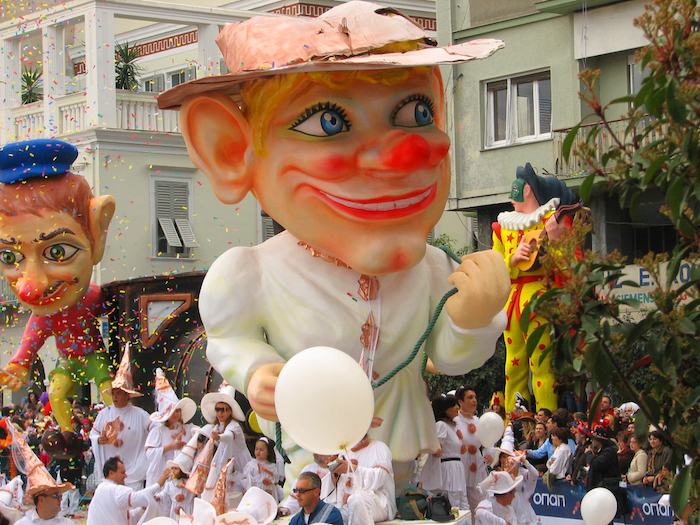
4. Easter
For Greeks, Easter is even more important than Christmas. The festivities kick off on Bunt Thursday, when families dye eggs red and bake buns. Greeks typically eat barbecued meat on this day too, to break weeks of abstinence. On Good Friday, there will usually be a procession, while on Holy Saturday people dress up to go to church for a special service. Just before midnight, the lights turn off to symbolise the darkness of Jesus’ tomb. The priest lights a candle from the Eternal Flame, sings the psalm Christos Anesti and offers the flame to attendees. The day ends with fireworks and The Good Saturday Dinner, which starts after midnight. Then, on Easter Sunday, most families tuck into a spit-roast lamb.

5. Spitting is a good thing
Another local tradition holds that spitting chases away misfortune and the devil. So, if you share some bad news with someone, don’t be surprised if they spit three times while saying, ftou, ftou, ftou. If you’ve seen My Big Fat Greek Wedding, you’ll have seen the awkwardness live in action.

6. Christmas
Christmas might not be quite as important as Easter in Greece, but that doesn’t mean they don’t go big. For instance, in Greece, they decorate a ship. The tradition dates back hundreds of years, though people are increasingly replacing it with a traditional Christmas tree. The tradition pays respect to the country’s illustrious seafaring history, as well as the new direction Christ’s birth gave human life. Other Christmas traditions include the Christoxylo (Christmas wood) being burned throughout the festivities, Christmas cookies and a huge Christmas dinner.
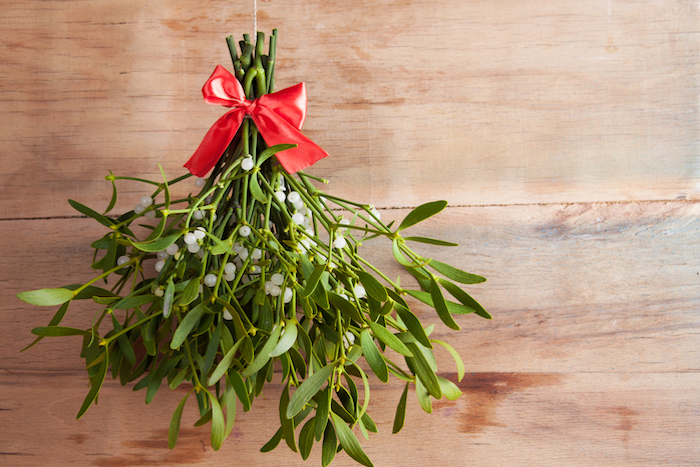
7. Go big or go home at New Year’s
The traditions really come to a head at New Year’s. Families will hang up pomegranates, which symbolise prosperity, fertility and good luck, over the door. Then, on New Year’s Eve, someone hurls the pomegranate on the floor (messy yes, but also necessary). The more seeds on the floor, the better your year will be. Agios Vassilis, Greek Santa, also arrives at New Year bearing gifts. He also sports a long white beard, dresses up in red velvet and has a penchant for sweet snacks.

You should be careful about who you invite to your house too. According to Kalo Podariko (first footing) tradition, just before midnight you should turn off all the lights in the house and go and stand outside your house. One person who is considered particularly lucky, pure of heart and innocent (usually a child) is sent into the house ahead of everyone else, right foot first. Then everyone else follows with their right foot first, to secure good luck for the following year. Once inside, you have to throw open all of the windows too to let out the Kallikantzaroi – evil spirits and goblins.
Carols continue well into the New Year, with children typically waking up early to spend the morning rushing from house to house in the local neighbourhood singing Kalanda – Greek Christmas carols. These ring in good luck for the new year.
Another Greek New Year’s tradition involves a sort of card marathon that starts in the early evening and goes on for hours, until well after midnight. New Year is considered a lucky time of year, so it’s a good idea to whip out a deck of cards to maximize it.





